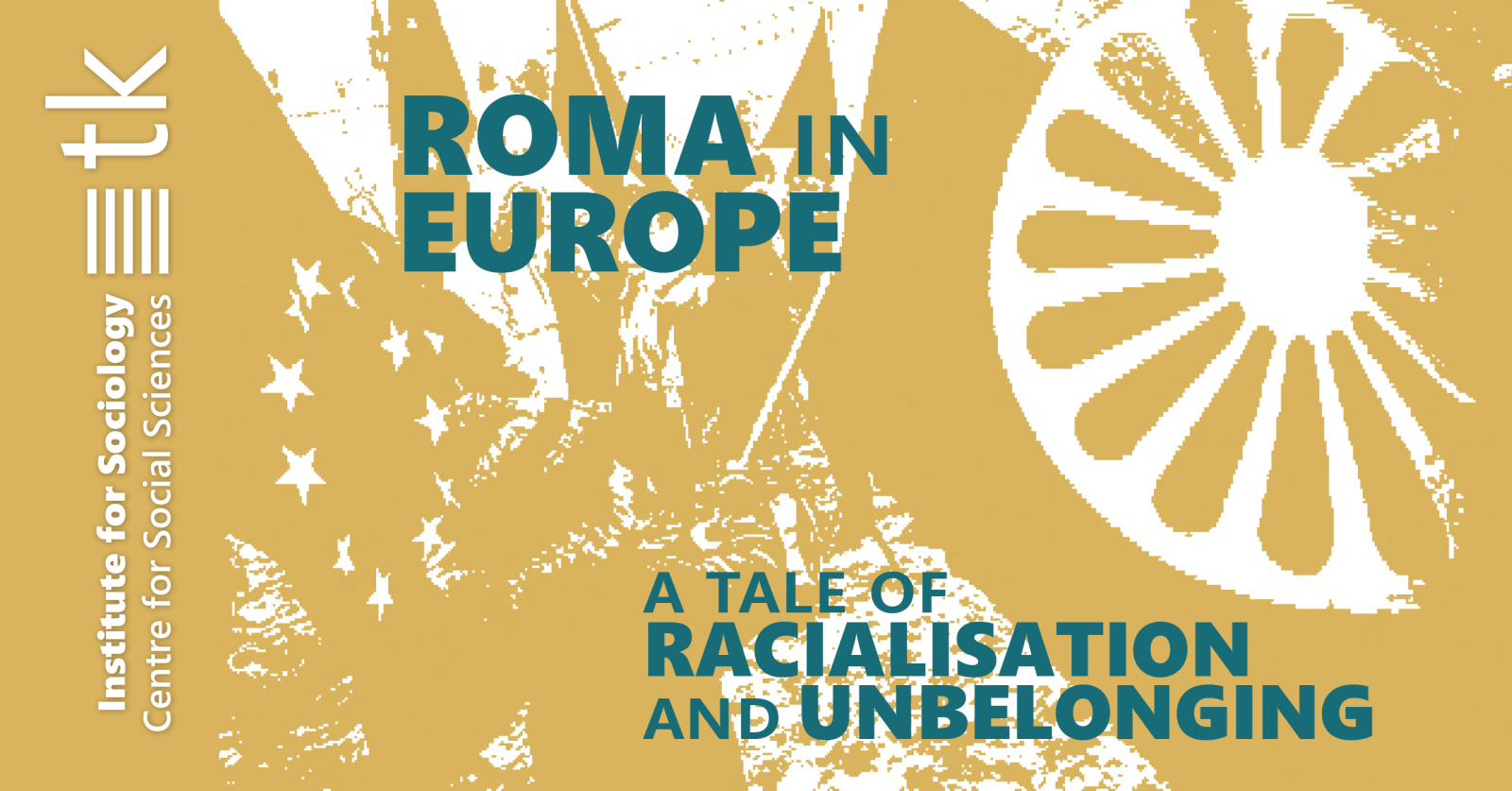
The Centre for Social Sciences Institute for Sociology cordially invites you to
Roma in Europe: a tale of racialisation and unbelonging
Guest Lecture by Andreja Zevnik, Senior Lecturer at the University of Manchester and Andrew Russell, Professor of Politics at the University of Liverpool
Date: 20 April, 2023, 1 p.m.
Venue: Centre for Social Sciences Institute for Sociology, 1097 Budapest, Tóth Kálmán utca 4. Room B1.15
Online:
https://us06web.zoom.us/j/81274207004?pwd=VzBjSzlrSUg5alY0NG90ZzMwWDdIQT09
Meeting ID: 812 7420 7004
Passcode: 873958
Abstract
Our paper explores how Roma are imagined and racialised in the European context, in particular in relation to the institutions of the EU and in relation to what constitutes the idea of a European nation. Discussions of racism in Europe (and the EU institutions) are less than common. Its history of colonialism, slavery, antisemitism, anti-Romanism, and Nazism establishes a political context in which some countries deem it problematic to use the concepts of race and racism (Kantola et al 2022). As a result EU institutions and policies are much keener to describe the context of European racism and logics of racialisation as problems of discrimination. When the EU does however acknowledge racism, it attaches it to either specific temporal and spatial contexts (the USA, other non-EU countries or the colonial past), or to right-wing populist movements. However, as we show, racism and racialisation are present and continue to shape decision-making in the European institutions as well as the attitudes of its publics in particular in relation to Roma.
In the paper we first look at the ways in which Roma emerge in the European space. How and in what contexts Roma became visible for the institutions of the European Union, before examining actions they took to address this visibility. We argue that the policies and the discourses of the European institutions promote normative whiteness (Kantola et al 2022) and continue to racialise Roma as the outsides and not-belonging to the European space. We show how discourse of integration, assimilation, and even empowerment is moulded on white majoritarian normative world-view, which further emphasises Roma different and their need to change. Further, the paper looks at ways in which media and public engagement with Roma continue to discriminate and marginalise the group. While EU policies are drawn with an aim to put a stop to such public attitudes, they themselves remain incapable to combat antigypsyism, racism and discrimination. We locate reasons for that inability in normative whiteness and persistent logics of racialisation. To make this argument the paper draws on policy documents produced by the EU institutions (EP and EC), as well as on media representation of Roma across the European countries.
Biography
Andreja Zevnik is a senior lecturer at the University of Manchester. Her research covers questions of political subjectivity of marginalised groups. Her work is both theoretical and empirical – theoretically she draws on postcolonial and critical theory and psychoanalysis, while empirically on political mobilisation of Black communities in the United States and Roma across Europe. Her work has among others appeared in Political Psychology, Globalizations, and British Journal of Politics and International Relations.
Andrew Russell is professor of politics at the University of Liverpool. He has written extensively on elections, political parties, and the political participation of hard to reach groups and marginalised communities. In 2003–2005, he was the academic lead on the Electoral Commission’s Review of the Age of Majority, which led to the lowering of the minimum age of candidature in all UK elections. He serves as a board member of the Campaign for Social Science.

